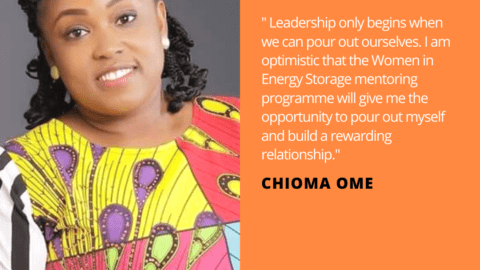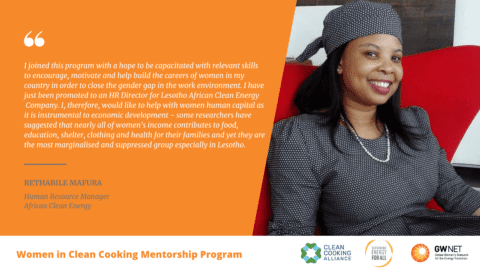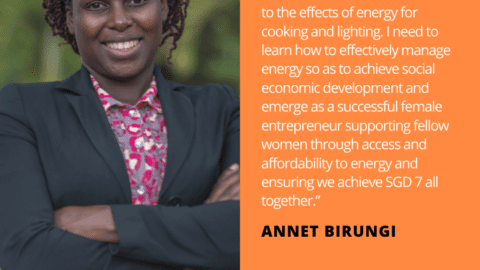Last month, GWNET held two knowledge-transfer webinars for participants of the GWNET 3/2020 and Regional LAC & MENA Mentoring Programmes, on the Status of Renewable Energy and the Role of Women in Energy. We were delighted to welcome key speaker Christine Lins, Executive Director of GWNET and a member of the Board of Directors of the International Solar Energy Society (ISES). Christine holds a Masters degree in international economics and applied languages and has more than 23 years of experience working in the field of renewable energy sources and energy efficiency.
Growth in renewable electricity has been impressive over the last five years, however, the heating, cooling, and transport sectors still lag behind. As the demand for energy continues to grow worldwide, any progress made has been quickly eaten up. Now more than ever, it is apparent that we need to urgently transform our energy systems towards more efficient and renewable energy.
During these two webinars, Christine led participants through the key findings of the newly launched REN21 Renewables 2020 Global Status Report, including a global overview of renewables, market and industry trends, the progress of the energy transition, the impact of COVID-19 on energy systems and the role that women are playing in the energy sector.
Key insights from the presentation and subsequent Q&A session included:
- Despite the highest ever annual installed renewable energy power capacity of over 200 GW, there was only a moderate change in the renewable share of energy demand (from 9.6% in 2013 to 11% in 2018).
- Most of the current focus is on the electricity sector, however, heating, cooling and transport (which account for over 80% of our energy, and are largely dominated by fossil fuels) require greater urgency i.e. investments, policies, and technologies.
- The number of countries that had installed at least 1 GW of solar PV and wind power grew from 18 countries in 2009 to 47 countries in 2019, attributed to the falling costs of renewables.
- Developing and emerging economies surpassed developed countries in renewable energy capacity investment for the fifth year running.
- In the face of the COVID-19 pandemic, renewables were the only source of electricity to record demand growth, due to low operating costs and preferential access to electricity networks.
- Renewable energy is critical to “building back better,” and “green recovery” measures which hold the potential to create more jobs, increase energy security, reduce emissions and improve human health.
- The best talent is needed in the renewable sector as we begin recovering from the COVID-19 pandemic while working towards the ambitious targets set out in the Paris Agreement. Women’s talent, perspectives, and expertise need to be engaged now more than ever.
If you are interested in knowing more about GWNET’s mentoring programmes, read more here.











